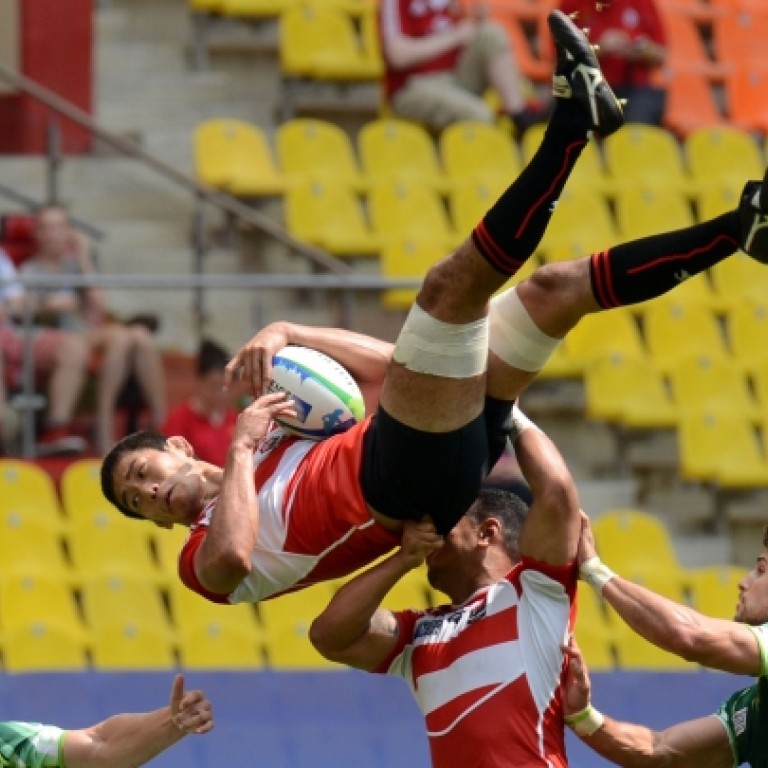
'New frontier' proves barren
Taking the World Cup Sevens to Russia might have seemed like a good idea, but the near-empty stands showed otherwise
Elena, a Kremlin tour guide, has a humorous take on the difference between freedom of speech in her country, Russia, and in the United States. I had sidled up to a group of American tourists at Red Square last week hoping to glean some information from the English-speaking Elena when she came out with this joke which had the group in stitches. She said: "An American and a Russian were comparing the pros of each country. The American boasted, 'You know, I can go anywhere in the United States, even the White House, and say loudly that I don't like Barack Obama and his policies. We have freedom of speech in our country'. The Russian replied, 'I can do the same thing in Russia. I can go to the Kremlin and say, 'I don't like Barack Obama and his policies'."
Yes, there is freedom of speech in Russia as long as you say what the cardinals of the Kremlin would like to hear. Rugby union's new frontier - the venue of last week's World Cup Sevens - has a long tradition in stifling dissenting voices. From Russian writer Alexander Solzhenitsyn to all-girl band Pussy Riot, those with a different view to the ruling party have found themselves banished to the gulag or behind bars.
Moscow is a modern city today. Watching the world go by while sipping a latte at the street cafes on Gorky Park, you could be forgiven for thinking that you were in Paris or London. But all this is just a veneer, for behind the gloss people like Elena still find themselves living in a society where the truth is, at best, to be taken with a pinch of salt.
This was perhaps best exemplified at the pre-tournament press conference where the president of the Rugby Union of Russia, Vyacheslav Kopiev, declared that 108,000 tickets had been sold for the three-day World Cup. It was all poppycock. The Luzhniki Stadium, the iconic venue that in 1980 had played host to the Olympics opening ceremony, and in 2008 the first European Cup final in Russia between Manchester United and Chelsea, has a seating capacity of 79,000. Organisers of the World Cup had reduced this to around 50,000 by placing advertising hoardings in prominent locations for the camera, as they feared the tournament wouldn't be a sellout.
Those fears were realised when hardly anyone turned up on the first two days. At most, there were around 4,000 people on the Friday and the Saturday. On the final day, perhaps 8,000. So where were all these people who had bought tickets?
Hong Kong Rugby Football Union president Brian Stevenson, who was at the tournament, said tongue firmly in cheek, that what his Russian counterpart had said was akin to a story filed by Tass News Agency - it's in the realms of .
The IRB, whose stated aim was to take the sport to a "new frontier", did its best to downplay the glaring lack of fans. Its chief executive, the smooth-talking Brett Gosper, glibly said: "We're probably a touch disappointed, we would have liked to have seen a few more people in the crowd, but we've been pushing 20,000 a day for this stadium. We could have made a choice and put this in a smaller stadium and burst the seams of a 20,000-seater stadium, but doing it in this stadium sends out an enormous signal."
Without batting an eyelid, the IRB's count of fans last Sunday was 20,000. They reminded me of the Hong Kong police, in reverse. Our lawmen always come up with undersized crowd numbers every time a public demonstration takes place in the city.
But really, 20,000 fans? No way did it come anywhere close. It would have been better for the IRB to stick to its intended purpose in bringing the World Cup Sevens to Russia, which was to develop the sport and raise its profile in a country where the game is still in its infancy.
Commercially, the tournament would have been a loss - not for the IRB, which would have been given a guaranteed sum, but for the local organisers. But this tab would most likely have been picked up by the government. So at the end of the day, everyone would be happy.
In future, however, the IRB is thinking of using the World Cup Sevens as a revenue earner, similar to the 15s World Cup. In that case, it will have to consider carefully where the next edition, in 2018, takes place. One thing is certain, though: it will not go to a new frontier. Perhaps Hong Kong, host in 1997 and 2005, would be the best bet.

